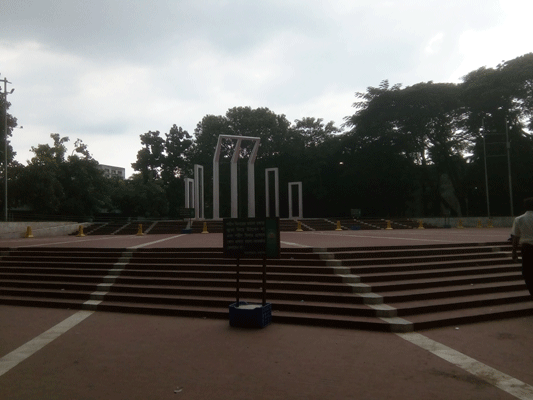
Dhaka, Apr 11 (IBNS): Despite Bangladesh’s remarkable achievement in improving agricultural productivity, the sector is facing risks from climate change, extreme weather events, and sea level rise.
To address impacts of climate change on agriculture, the government of Bangladesh and the World Bank today launched the Climate-Smart Agriculture (CSA) Country Profile and the Climate Smart Investment Plan (CSIP) for Bangladesh.
Since 2000, agriculture has been the leading contributor to country’s success in reducing poverty.
But, both short term climate variability and longer-term climate change affects the agriculture sector significantly. Climate change is expected to decrease Bangladesh’s agricultural GDP by 3.1 percent each year.
By 2030, increasing salinization will reduce arable land.
Today, the launch event brought together key stakeholders to discuss steps in unlocking climate smart technologies, practices and potential investment in agriculture sector, as well as identifying bottlenecks.
The two-day event will also develop strategies to mobilize climate finance for agriculture.
“The importance of the intersection between agriculture and climate change in Bangladesh cannot be overestimated,” said Rajashree Paralkar, World Bank Acting Country Director for Bangladesh, Bhutan, and Nepal. “The Climate-Smart Agriculture Profile will allow us to take stock and scale up climate smart approaches to agriculture.”
Losses from the 2007 and 2009 cyclones were estimated at around two million metric tons of rice, enough to feed 10 million people.
Hence, CSA strategies addressing saline intrusion due to sea level rise and tropical storm swells are important for Bangladesh where many farming areas are in low-lying, flood-prone deltas.
The Climate Smart Investment Plan will identify investment and policy opportunities by further developing the agriculture actions on climate change as outlined in the Nationally Determined Contribution.
“The plan can help the country to mobilize resources for a resilient agriculture sector to meet the needs of the future. This will ensure that Bangladesh can reach self-sufficiency in commodities like rice and milk despite the challenges that climate change poses,” said Manievel Sene, Senior Agriculture Specialist, World Bank.
Narayon Chandra Chanda, M.P., Honorable Minister of Fisheries and Livestock, was the chief guest at the event, which was attended by policy makers, government officials, civil society members, and researchers.
Support Our Journalism
We cannot do without you.. your contribution supports unbiased journalism
IBNS is not driven by any ism- not wokeism, not racism, not skewed secularism, not hyper right-wing or left liberal ideals, nor by any hardline religious beliefs or hyper nationalism. We want to serve you good old objective news, as they are. We do not judge or preach. We let people decide for themselves. We only try to present factual and well-sourced news.







